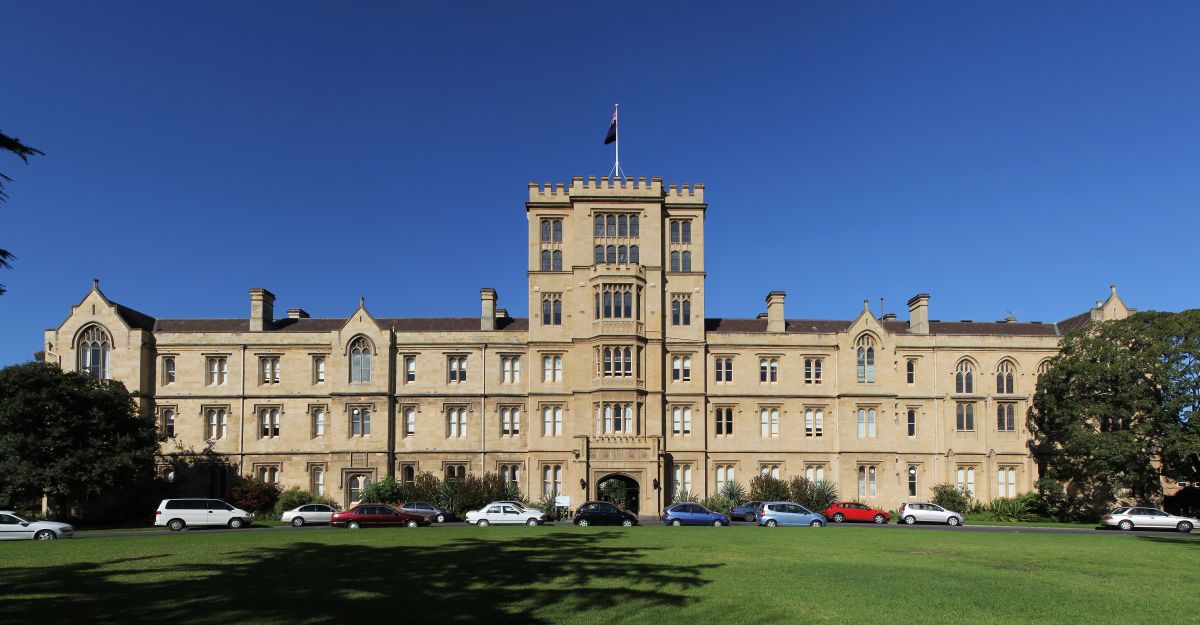In late February, Universities Australia revealed its biggest summer secret — the hard work of various provosts from the Group of 8 universities and the antisemitism envoy in nutting out a new definition of antisemitism.
Antisemitism is discrimination, prejudice, harassment, exclusion, vilification, intimidation or violence that impedes Jews’ ability to participate as equals in educational, political, religious, cultural, economic or social life. It can manifest in a range of ways including negative, dehumanising, or stereotypical narratives about Jews. Further, it includes hate speech, epithets, caricatures, stereotypes, tropes, Holocaust denial, and antisemitic symbols. Targeting Jews based on their Jewish identities alone is discriminatory and antisemitic.
Criticism of the policies and practices of the Israeli government or state is not in and of itself antisemitic. However, criticism of Israel can be antisemitic when it is grounded in harmful tropes, stereotypes or assumptions and when it calls for the elimination of the State of Israel or all Jews or when it holds Jewish individuals or communities responsible for Israel’s actions. It can be antisemitic to make assumptions about what Jewish individuals think based only on the fact that they are Jewish.
All peoples, including Jews, have the right to self-determination. For most, but not all Jewish Australians, Zionism is a core part of their Jewish identity. Substituting the word “Zionist” for “Jew” does not eliminate the possibility of speech being antisemitic.
According to Universities Australia, the definition has been endorsed by all thirty-nine member universities (though this assertion may not be entirely accurate — it appears already one university, University of Technology Sydney, will not adopt the definition). For those not familiar with the Australian calendar, summertime extends across Christmas (December-February) and is a period when many faculty are absent from their campuses and disengaged with the machinations of university managers. Universities Australia (UA) is our umbrella organisation. The Group of 8 (Go8) are our country’s leading universities.
Prior to the UA definition, universities in 2022 and 2023 were locked into debates as to whether they should adopt the controversial International Holocaust Remembrance Alliance definition of antisemitism, the so-called IHRA definition. VCs across Australia were pushed to approve IHRA by what was in 2023 a newly founded group of federal politicians called the Australian Parliamentary Friends of the IHRA. Only a handful of universities (five) adopted it. At the University of Adelaide, for example, a discussion period that engaged with faculty debate and feedback resulted in the definition being rejected. Similar transpired at the University of Sydney. Macquarie University engaged in no debate with staff, and absorbed the IHRA definition (without the accompanying examples) in its DEI policy over the summer of 2020-2021.
The threat that IHRA presents to staff and its weaponisation against students have been discussed elsewhere in this magazine. Where UA differs markedly is that the definition has not and likely will not be debated across universities. For this reason, numerous articles have emerged since the UA definition was publicly announced, exposing its particular flaws and dangers. Most have criticised its poorly written nature, which I explore in detail below. I am a researcher of literature and I am invested in understanding the political nature of language, and the context in which that language is embedded — even chaotic and unfocused language. I want to add a more “literary reading” to what has already been said of the definition to expose subtexts that not even the leading lights of the Go8 realised or cared to realise.
The opening paragraph is wordy and worth recalling in full:
Antisemitism is discrimination, prejudice, harassment, exclusion, vilification, intimidation or violence that impedes Jews’ ability to participate as equals in educational, political, religious, cultural, economic or social life. It can manifest in a range of ways including negative, dehumanising, or stereotypical narratives about Jews. Further, it includes hate speech, epithets, caricatures, stereotypes, tropes, Holocaust denial, and antisemitic symbols. Targeting Jews based on their Jewish identities alone is discriminatory and antisemitic.
Despite its wordiness, this paragraph still manages to conceal more than it reveals. It is true that antisemitism is all these things — prejudice, violence and discrimination against, hatred, harassment, exclusion, vilification and intimidation of Jewish people. All peoples should support Jews to be able participate as equals in educational, political, religious, cultural, economic or social life. And everyone should abhor hate speech that targets Jewish people. Reading this paragraph, one might assume that Australia’s universities are rife with antisemitism, and were in dire need of a new definition. The encampments of 2024 that VCs effectively outlawed over the summer, to the delight of “Special Envoy to Combat Antisemitism” Jillian Segal, have been cited as examples. But these were populated by an array of students, including significant numbers of Jewish students. Are the Jewish participants at the encampments also antisemitic?
Posters on university campuses with phrases like “From the River to the Sea, Palestine will be Free” or students chanting “Free Palestine!” at campus rallies are other examples of alleged antisemitism. According to education minister Jason Clare, “From the River to the Sea, Palestine will be Free” could be interpreted as meaning the annihilation of Israel — but what could be interpreted and what is actually being said are two different things.
The Israeli Likud party, headed by PM Benjamin Netanyahu — against whom the International Criminal Court issued an arrest warrant for war crimes — states similar words in its charter: “Between the sea and the Jordan [River] there will only be Israeli sovereignty.” Slogans like “Free Palestine!” and “From the River to the Sea, Palestine will be Free” are asking for freedom, or liberation, for Palestinians. They are not demands of exclusive Palestinian sovereignty on the land from the river to the sea.
By contrast, the Likud charter’s phrasing — “there will only be Israeli sovereignty” — declares its mission to exclude all others and demands sovereignty only for Israelis. That mission to exclude Palestinians has manifest itself in a variety of ways since 1948: population transfer, countless wars, land theft, settlements, apartheid and genocide — what Palestinians call the ongoing Nakba. In other words, the phrase “there will only be Israeli sovereignty” has been and continues to be enacted through the literal annihilation of Palestinians. If some students, feel discomfort at words calling for Palestinian freedom, it is possible they are projecting their understanding of the phrase based on the Likud meaning and seventy-seven years of Israel asserting its exclusive sovereignty over the land, emptying it of its Indigenous inhabitants.
The second and the third (and last) paragraph introduce the Israeli state and government and Zionism into the definition. These are even more chaotically written than the opening lines. I can only speculate as to the reasons behind the poor form and syntax that etched its way into every aspect of these two paragraphs. All I can think is that the provosts doing the drafting knew deep down they were caught undermining academic freedom.
You can see within and across sentences efforts to be definitive but retain some wriggle room. Look, for instance, at the first sentence of the second paragraph: “Criticism of the policies and practices of the Israeli government or state is not in and of itself antisemitic.”. Why the need for “in and of itself”? Why not just “Criticism of the policies and practices of the Israeli government or state is not antisemitic”? I know these sorts of phrases well. I write them when I am unsure of my argument and then edit them out when I have become more confident of it.
The next sentence, “However, criticism of Israel can be antisemitic when it is grounded in harmful tropes, stereotypes or assumptions”, should have strengthened the argument: but it could not do that work because, again, I suspect the drafters of this definition — as members of university leadership teams — were anxiously wondering who will decide when a trope, stereotype or assumption is harmful? No doubt, like most university managers, the Go8 crew are well aware that it is no longer internal processes that determine what or who is or is not antisemitic, but more likely pro-Israel supporters, the Murdoch press and various politicians who have been busy writing complaint letters, publishing slanderous articles and running parliamentary inquires.
In my reading, the robust posturing of “in and of itself” is nothing but a meek attempt to stress what they, these Go8 drafters, know to be under grave threat — academic freedom, or university staff and students’ right to criticise Israel’s treatment of Palestinians. In its vague “tropes, stereotypes, assumptions” the definition has managed to not only muddy more than clarify, but also remove Israel from the scrutiny that every state should be subject to — especially in a space of higher education.
The last paragraph is where Zionism makes its first appearance: “For most, but not all Jewish Australians, Zionism is a core part of their Jewish identity”. You can imagine the handwringing among drafters here, fretting over the need to make sure Jewish Australians who reject Zionism are not erased by the definition. This sentence reveals that they know Zionism and Judaism are not the interchangeable terms that the envoy would like them to be for political and legal purposes.
The important sentence is the one that follows: “Substituting the word ‘Zionist’ for ‘Jew’ does not eliminate the possibility of speech being antisemitic.” In that verb, “substitute”, lies an accusation against those of us who criticise Israel and Zionism: that we switch one word out for another in a cunning attempt to hide our antisemitism.
No one is substituting words. Critics of Israel — not least those of us in higher education — know the words we use and what they mean. We know Zionism is a political ideology and a Jewish person is someone who belongs to a particular faith. Just because Israel and the envoy want to confuse them for political purposes, it does not mean those who use them are at all confused.
What this brings us to is an unfortunate aspect of the definition, made on the part of the Go8 brains trust, even if unconsciously. The UA definition, as noted in a recent article, takes us closer to the recognition of Zionism as a protected political ideology and identity. Can we look forward to the same happening for every political ideology and all its adherents? Will Marxism and Marxists, fascism and fascists, socialism and socialists, Maoism and Maoists, neoliberalism and neoliberalists, among others, be afforded the same protections? It is absurd to even think that could be the case.
Finally, “All peoples, including Jews, have the right to self-determination.” Do Palestinians? Will an equivalent definition spell this out by UA and Go8? Palestinians do not have a state. Right now they are being expelled, through genocide and threats of transfer from Gaza, and the West Bank is being increasingly annexed. Despite this, I do not see Universities Australia rushing to declare its support for Palestinian self-determination.
Perhaps in an attempt to balance out the power invested in the antisemitism envoy, the Albanese government appointed an Islamophobia envoy, and has suggested that a comparable definition of Islamophobia will follow suit. This definition has been delayed, just like the appointment of the Islamophobia envoy — who seems to be hardly saying much anyway. The Australian government, and no doubt university leaders from the Go8 and beyond, along with UA, in their Western ignorance, seem to think that Islamophobia correlates to antisemitism. It does not. Anti-Palestinian and anti-Arab racism is the partner to antisemitism.
You would expect the drafters of the definition, as leaders at Australia’s top universities, to know that. It is not hard to imagine that any definition of Islamophobia will not, for instance, address the Palestinians’ lack of self-determination and the erosion of their self-determination by Israel since 1948, 1967, 1993, 2005, 2023 and every year in between. If they overlooked this detail, a simple consultation with any one of their several experts on staff would have made this clear.
For any Palestinian, and this Lebanese person, what is painfully evident is that, in the process of writing the definition, not one person in the room saw, imagined, considered Palestinians. Not one of them cared to remember that Zionism is not some feel-good, political ideology that certain (“most but not all”) Jews see as core to their identity, but is a lived reality for Palestinians and Lebanese, that has manifest itself in material ways in the lives and fortunes of these people — in displacements, deaths, land theft, occupation, wars, apartheid, genocide.
What all of this reveals about the UA definition is that, to borrow the words of Columbia University Professor Rashid Khalidi when assessing the Trump regime’s attack on his university: “It was never about eliminating antisemitism. It was always about silencing Palestine.”
What I find noteworthy is not so much that university leaders, steeped in DEI language and policy, allowed this happen, but that some of them are well-versed in postcolonial critique. They likely know the work of another Columbia luminary, Professor Edward Said. In 1979 Said wrote “Zionism from the Standpoint of its Victims”, a necessary reading that may have helped the drafters remember the Palestinians, and may have forced them to sit uneasily with the task they signed up for — to draft an embarrassing and dangerous definition.
Image: Wikimedia Commons






